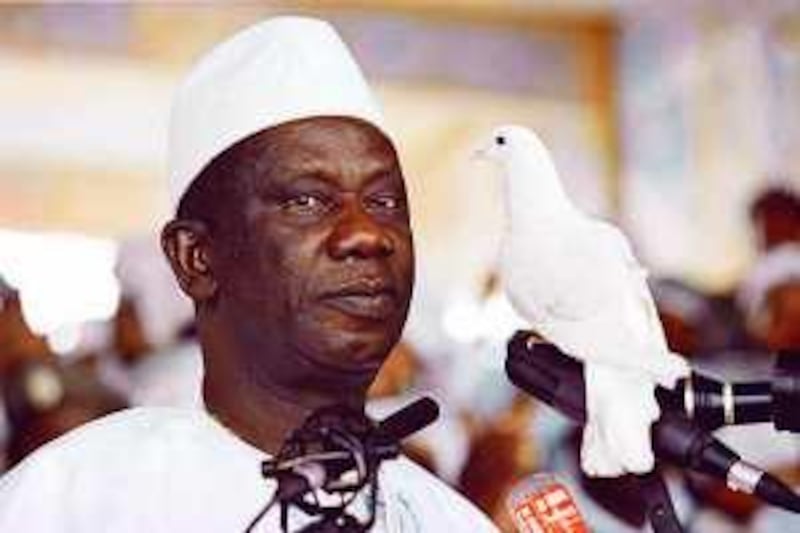Lansana Conté became the president of Guinea in a bloodless coup in April 1984. However, his regime produced its fair share of bloodshed, despite his declaration that the country would move towards a workable democracy. Some political parties were allowed to operate, but Conté jailed or bullied various opposition leaders, and in the most recent presidential election (the last of three) allowed one, virtually unknown opponent.
Conté succeeded Ahmed Sékou Touré, who had been president of Guinea since its independence from France in 1958. He was backed by western powers, keen to maintain a relatively stable leader in the notoriously war-prone West Africa region including Sierra Leone, Liberia and Ivory Coast. Conté survived far longer than his popularity. He ruled his eight million subjects with a mixture of corruption and paranoia, supreme arrogance and the might of the military.
Born into a Muslim family in 1934, although the exact date is unknown, Conté was educated at a Quranic school before enlisting in the French army in 1955, after which he was sent to Algeria during its war for independence. On returning to Guinea, he ascended swiftly through military ranks to become the president's chief of staff in 1975, and began manoeuvring to gain power soon after Sékou Touré's death.
He survived a coup in 1996, an assassination attempt in 2005, and a potential revolution during 2006-07 in the wake of a series of general strikes organised by trade unions. Dogged by persistent ill health in the last years before his death, and abroad for long periods of treatment, he nonetheless managed to retain his authoritarian grip. However, he did little to capitalise on the country's rich mineral resources, and less to lift his oppressed people from poverty and illiteracy.
Lansana Conté died on Dec 22, aged 74. * The National






